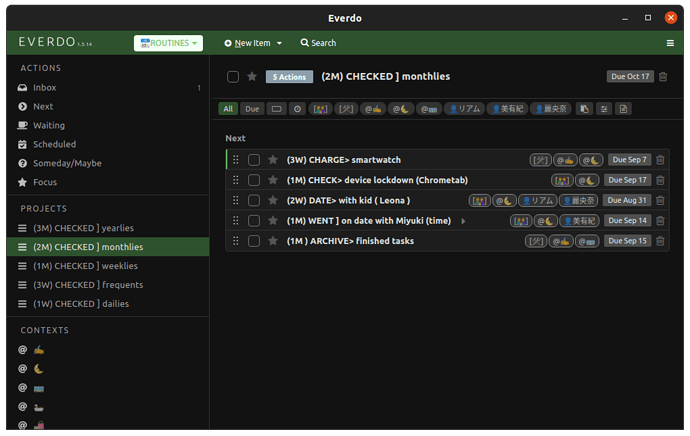@joshuarobison I do understand the frustration, here. Sometimes it can feel a bit unintuitive.
One thing that I do notice is a difference in how Projects are defined. For example, you have used an Action to title your Project - because of this, it feels duplicative to create a “terminating action”.
However, I think a subtle shift in understanding might help here. A project is not an action, it’s a stake in the ground that reminds you of an end goal, that actions need to be done until that goal is met. Put explicitly, a project should tell you what finished looks like, not what the last action will probably be.
In this instance, my project would not be “Bake a cake” - my project would be “Have a cake”. This leaves flexibility for various solutions (such as simply buying a cake to reach the goal). If there are more constraints, these are listed in the project too - “Have a cake, baked myself” - or “Feel confident in baking a cake on my own” if it’s a learning goal.
This removes the logical need for a context at the project level - after all, as you say, projects are likely to encompass multiple contexts and changing contexts.
For some of your uses of projects, therefore, there’s simply a conceptual collision. As you say yourself, you are using them as a next action or as simple containers. Used as intended as projects, looking at the “Next Actions” list is sufficient to see all relevant and actionable children; this only becomes a problem if they are being used as containers instead of as actual projects.
What’s more, all of these children are being grouped as “next actions”, too. But, they aren’t actually next actions - from your examples, they’re actually scheduled tasks. If you were to schedule them, then seeing all of your pending tasks would be as simple as opening the “Scheduled” list.
All of that said, I do understand your frustration. I can see you’ve built quite a sophisticated personal system that is a little frustrated by some fundamental conceptual differences to the intended use - particularly on what constitutes a project.
It seems to me that you have a desire for some methods of organisation that aren’t really projects, but that the Project feature seems like the closest fit for at the moment. In particular, it seems like you want to be able to only see your various lists and containers (which you have put into projects) in particular contexts. You want to remove the complexity of being able to see those lists at other times, while still being able to see their children if you’re in the appropriate context - is that right?
